Cognitive Ability is Enhanced in Youth-Centered Volunteer Projects
Global Volunteers promotes children’s well-being around the world in many different ways so they can realize their full potential. This third post in a series about child development projects examines how brain development enhances cognitive ability, and how our work contributes to healthy brain development for children in partner communities.
Although the brain’s wiring is created over our lives, it’s during critical stages of development when specific skills can be built. These stages depend on when the brain is ready to make new connections, and when a child is developmentally ready to move to the next stage. Stimulation and experience are crucial for the wiring of a child’s brain. An ideal environment for this initial wiring to occur is filled with stimulation and opportunity for experience. What is the significance of stimulation for brain development and what does Global Volunteers do to aid children’s brain development in the communities where we work?
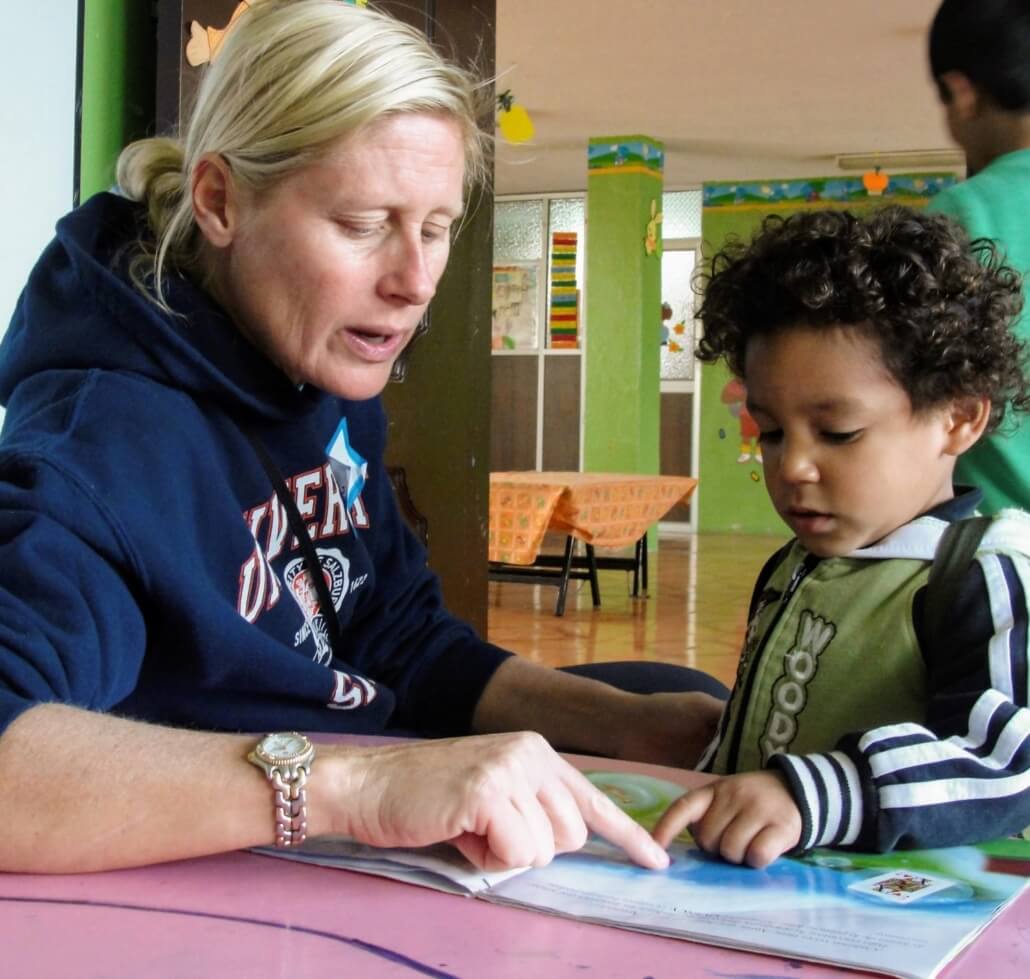
Basic Functioning of the Brain
At birth, the brain already has 100 billion brain cells (neurons). Neurons can connect to each other, communicate through chemicals and electrical impulses, and fire up other neurons. These connections, the “wiring” between them, allow the person to feel, move, and basically, live. Connections also make the brain grow and are the key to a healthy brain. Although the number of neurons is the same from birth to three years of age, a child’s brain gets three-and-a-half times bigger during this time, all because of connections. How do the basic parts of the brain relate to the functioning of our bodies?
The brain stem is responsible for survival functions, including breathing and swallowing. To make the initial connections in the brain stem, the newborn must feel safe. This means s/he needs an environment that’s warm, dry and absent of stressful noise and light. Further his/her basic needs must be met: food and water, comforting touch and positive stimulation. The cerebellum is the center for balance, coordination, and speech. The occipital lobe is responsible for hand-eye coordination, grasping, and recognizing objects. The frontal lobe controls cognitive skills such as emotional expression, problem solving, memory, language, judgment, etc. The temporal lobe is responsible for hearing, learning and memory. The limbic system governs emotions and motivation and plays a big part in learning and memory.
Building a Healthy Early Start
In Tanzania, the Reaching Children’s Potential Program (RCP) is fully centered on essential services for pregnant mothers so their babies develop healthy brains, and escape stunting. Children who become physically and cognitively underdeveloped before or after birth are most often products of poor maternal health, lack of adequate nutritional intake, and/or suffering disease during the first 1,000 days of life (including time in utero). Many experts believe the effects of stunting are irreversible after children reach their second birthday. Children who are stunted spend less time in school and are more likely to suffer from other health problems as they mature. For this reason, the RCP Program’s interventions of nutrition; water, sanitation and hygiene (WASH); parental education; and accessible healthcare begin with pregnant women and are delivered with volunteers working together with parents, supported by RCP caregiver and healthcare staff.
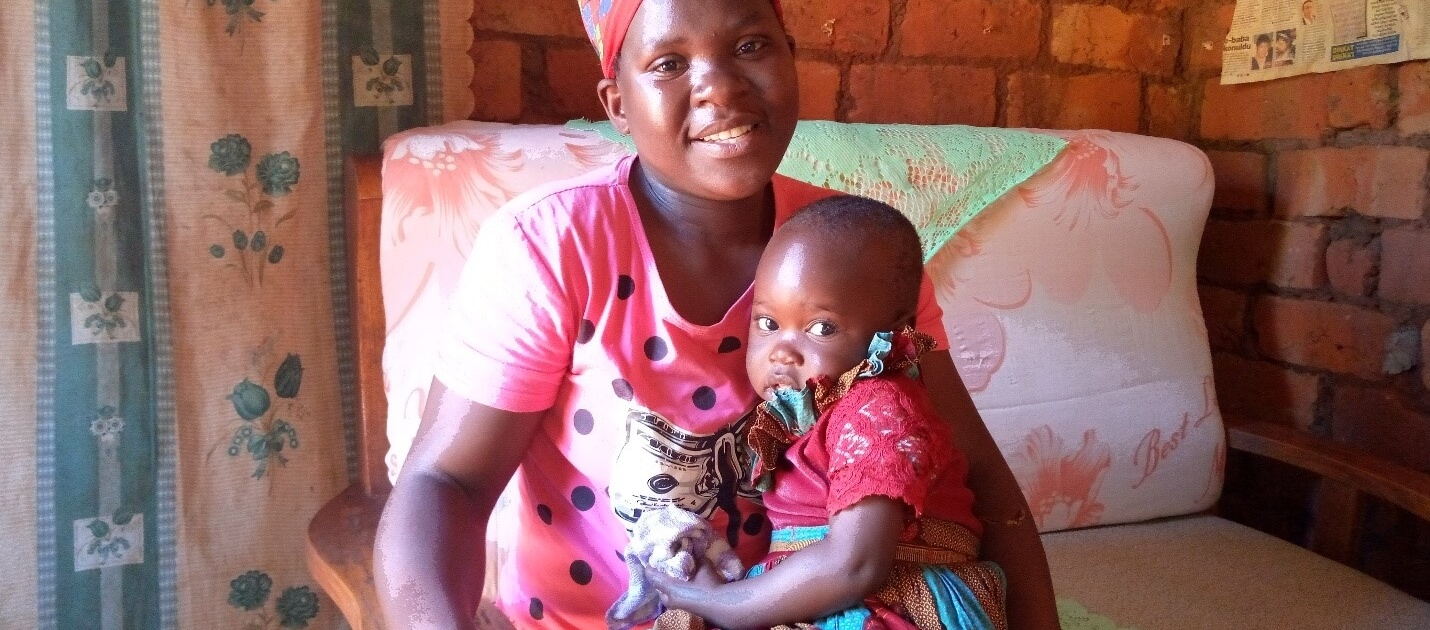
Through the Global Volunteers-funded Ipalamwa General Clinic (IGC), mothers receive consistent quality prenatal and postnatal care and participate in health, nutrition, and child development workshops. The IGC and on-site pre-natal lodging provides a safe place to give birth and bond with their child pre- and post-delivery. Further, we provide mothers and children with fortified meals, technologies to increase household vegetable and protein production, and instructions on healthy diets – all interventions to feed bodies and brains.
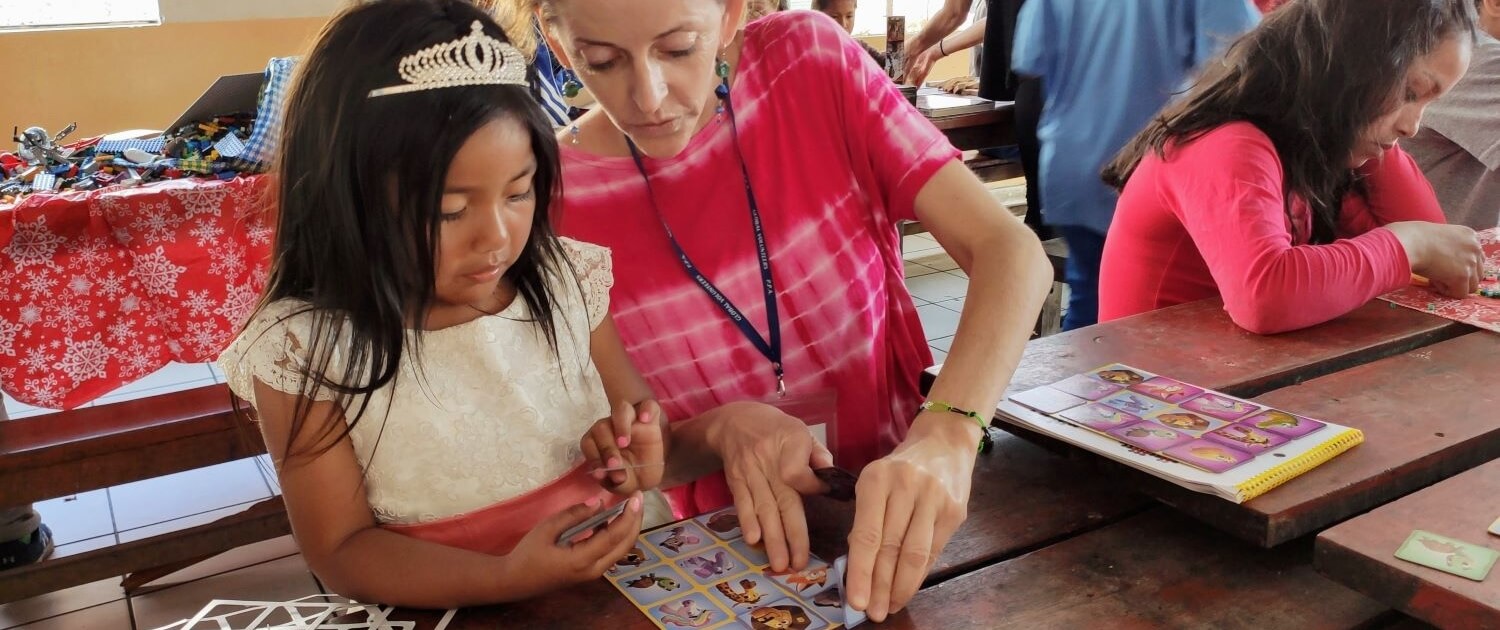
Aiding Brain Development Through Psycho-social Support
Babies’ babbling, gurgling and smiling are intended by nature to attract attention, and the response in return advances the child’s development. Harvard’s Center on the Developing Child (HCDC) cites this “serve and return” interaction between child and parents or caregiver as a major ingredient in neurological function. Repeated interactions with caregivers aid brain development immensely. This is why Global Volunteers encourages strong early childhood programming for RCP parents in Tanzania as well as in work projects for volunteers serving young children.
Miguel Rodríguez, a psychologist who founded and directs the Sagrada Familia children’s home in Peru, stresses the importance of active interactions to aid children’s brain development: “We can improve the cognitive ability of our children through the hard work of each caregiver who teaches through example and practice in an active learning process.” When volunteers serve in this “caregiver” capacity, they’re actively engaged in improving children’s cognitive development.
HCDC says “developing brain circuits can be disrupted, affecting how children learn, solve problems, and relate to others” when such interactions are disrupted or absent. By contrast, “serve-and-return interaction beginning in infancy builds a foundation in the brain for all the learning, behavior, and health that follow.”
Since each stage of brain development builds on previous stages, these interactions are the building blocks not only for brain development in the early years, but for functioning throughout their lives. Ideally, parents provide adequate and continuous responses to their young children. But in the developing world, parents may not have the knowledge, availability or personal capability to do so. This is when volunteers can boost a child’s brain development and cognition.
At facilities like Papa’s House orphanage in Kathmandu, volunteers engage in activities intended to strengthen stability, security and reassurance for the resident children. Global Volunteers Consultant Buddhi Man Shrestha, founder of Papa’s House explains: “In Nepal, children who are orphaned when parents die from sickness and disease often have to fend for themselves. We offer a family environment with love, grace, mercy, restoration and empowerment. The supportive interaction that volunteers provide further help children’s learning and development.”
Similarly, at the FUNDAC early childhood development centers in Ecuador, Pilar Guzmán shares: “It is of great importance to improve the cognitive capacity of our boys and girls, since they are in formative ages and at the beginning of their life. Volunteers help with cognitive stimulation, improving the quality of the classrooms. They spend most of their time providing special motivation, charisma, work, and love, adapting to each child’s needs.”
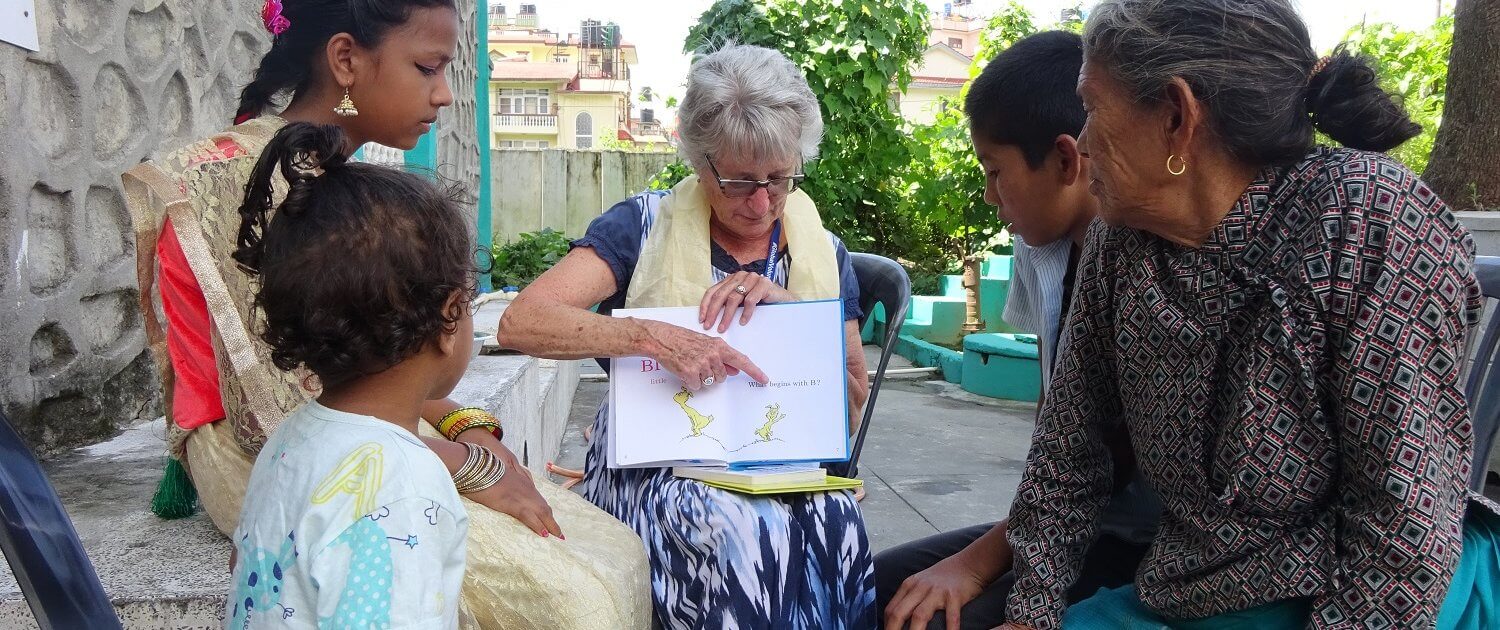
The Formative Role of Volunteers
In schools and daycare or child development centers in Peru, Ecuador, Nepal, St. Lucia and Tanzania, volunteers who can stimulate and nurture children are invaluable resources to over-worked staff. That’s why our community partners – Sagrada Familia in Peru, FUNDAC in Ecuador, Papa’s House and the St. Joseph school in Nepal, Kids’ Step Early Childhood Development Center in St. Lucia and the Evangelical Lutheran Church (ELCT) in Tanzania among others – engage volunteers to care for, stimulate, and teach children in their communities.
In Peru, volunteers care for, play with, stimulate, and teach abandoned or at-risk children at a day care center and pre-school, and tutor elementary and high school students.
In Nepal, Global Volunteers Country Manager Stephen Raja explains that volunteers also serve as classroom resources in secondary schools. “Volunteers teach beyond what local teachers usually teach in Nepal, so the children are more engaged. This process involves games, songs, experiments, new ideas, etc. All of these really help enhance the students’ cognitive ability for the long term.”
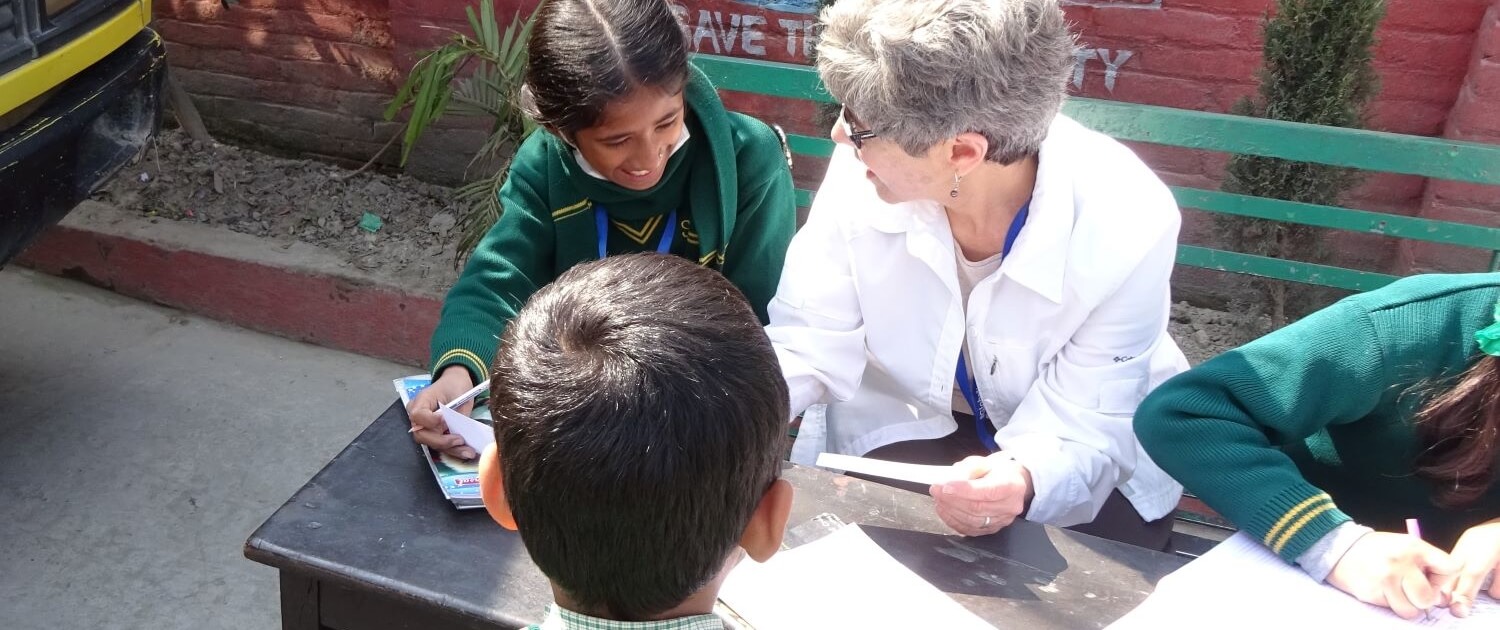
Over the course of a child’s life, the benefits of these interventions compound, according to UNICEF. “In the early moments of a child’s life, the stimulation that comes with love, play, talk, singing and reading books with a caring adult. . .can boost cognitive, physical, social and emotional development.” When volunteers provide desperately needed stimulation, the children reciprocate – and while they may not understand it completely, both adult and child contribute to each others’ future growth.
You may also like:

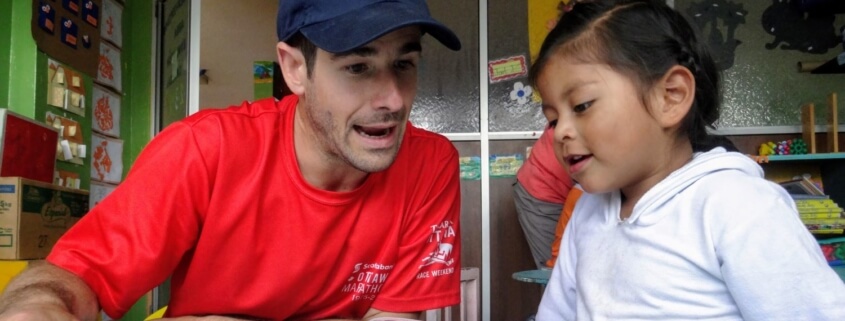


Leave a Reply
Want to join the discussion?Feel free to contribute!